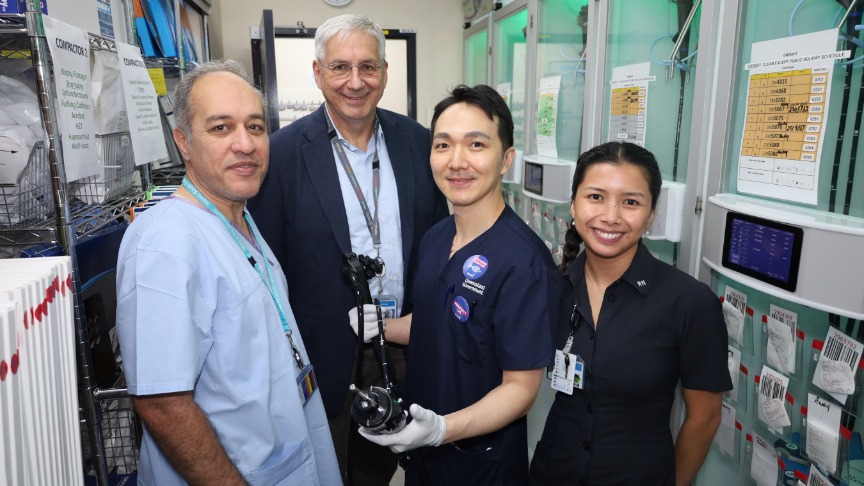
While bowel cancer, also known as colorectal cancer, has long been associated with older adults, rising cases in Australians under 50 are prompting serious concern.
PA Hospital’s Director of Gastroenterology and Hepatology Professor Gerald Holtmann said young people now make up an increasing share of new diagnoses, and awareness of symptoms could save lives.
“Deaths from colorectal cancer are now the most prevalent cancer-related deaths in young males and among the top in females under 50,” he said.
“While the majority of cases still occur in people aged 50 to 75, we are seeing a very alarming increase in those aged between 20 and 45.”
Professor Holtmann said while the exact cause of this rise isn’t fully understood, researchers are looking closely at lifestyle and dietary changes.
“We speculate that food additives and processed foods play a role. This change in nutritional behaviour may alter the gut microbiome, which contributes to the development of cancer,” he said.
Professor Holtmann said a single colonoscopy can reduce the risk of dying from colorectal cancer by up to 90 per cent.
“It’s no longer a disease that only affects people in their 60s and 70s. It can affect young people, and early detection makes all the difference,” he said.
Australians aged 45 - 50 are now eligible to request a bowel screening test, and anyone with symptoms, regardless of age, should follow up with their GP.
For 36-year-old Kaz Kelly, early testing was lifesaving.
“My GP saved my life by sending me for a colonoscopy,” Kaz said. “If I had a different GP, they probably would have sent me away with iron tablets or told me it was my period.”
Kaz was diagnosed with stage 4 bowel cancer despite having almost no symptoms. A routine blood test picked up something unusual, prompting her GP to investigate further.
“As a 36-year-old, to be told you have stage 4 cancer is truly terrifying. I don’t wish it upon anyone,” she said. “Women are often brushed off in healthcare, so it’s really important that I use my voice as a survivor.”
Kaz’s story highlights why listening to your body, and advocating for yourself, matters.
“If something doesn’t feel right, speak up,” said Professor Holtmann. “Colorectal cancer is affecting more young people than ever before. The earlier we find it, the better the outcomes.”
If you are experiencing any of the following symptoms, speak to your GP and ask for a bowel screening test, even if you're under 50:
- Blood in the stool
- Persistent changes in bowel habits (diarrhoea or constipation)
- Unexplained abdominal pain or bloating
- Unexplained weight loss
- Ongoing fatigue due to low iron levels